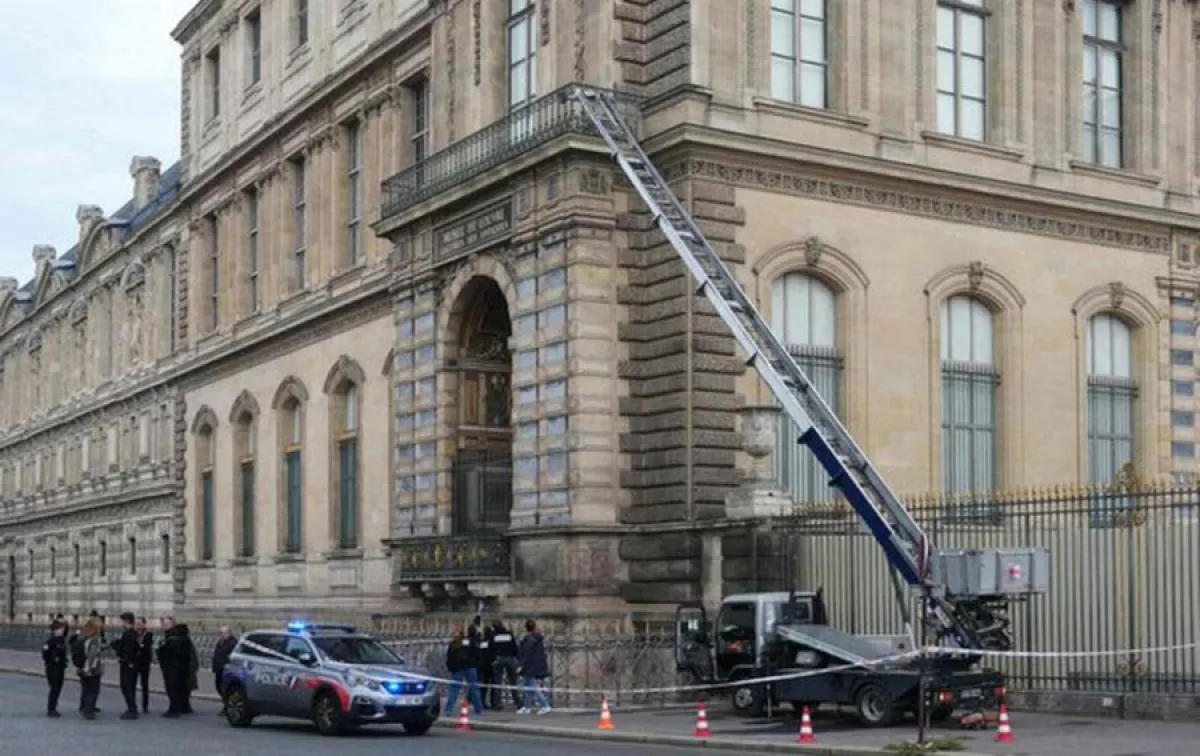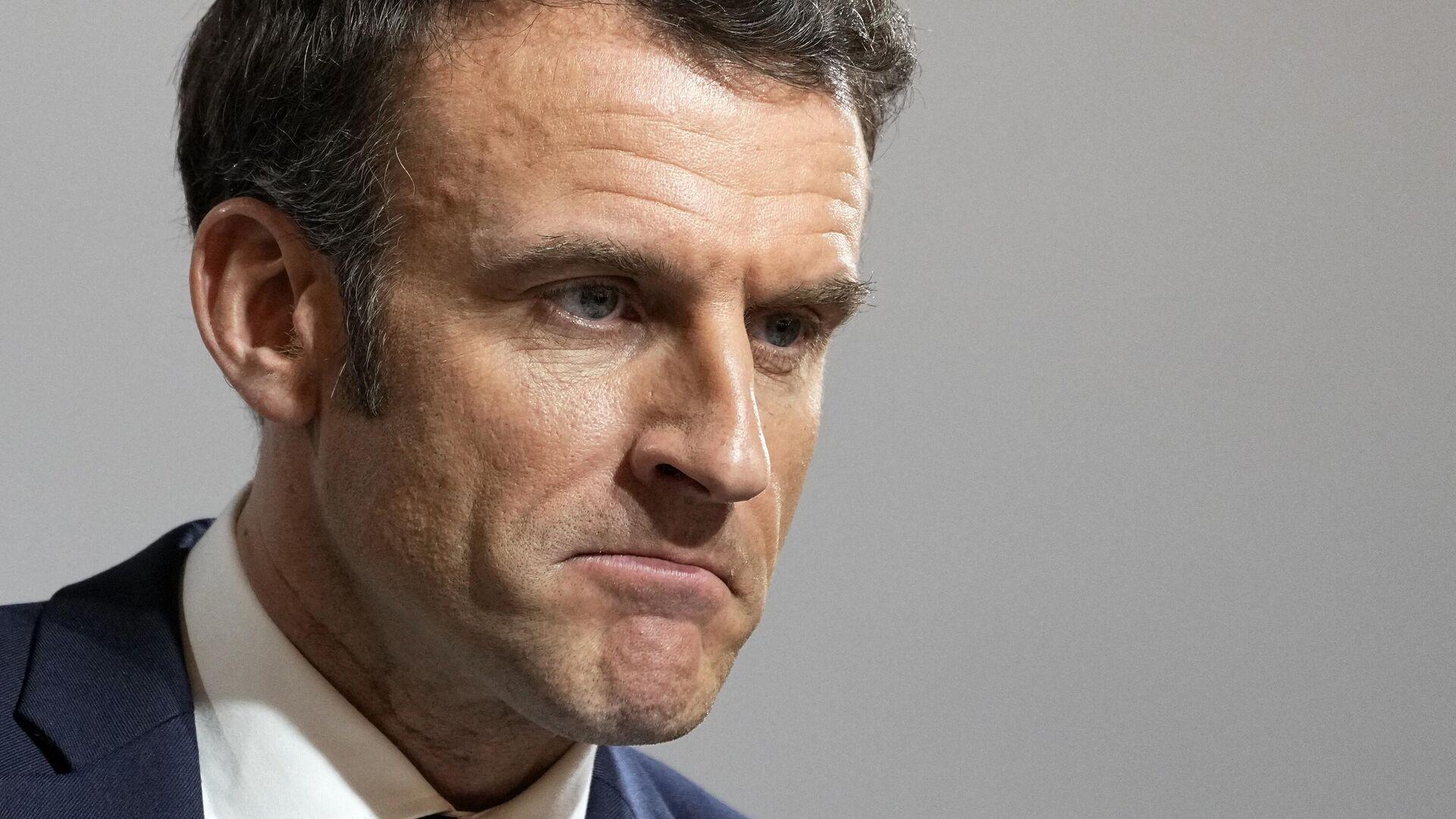A heist at the Louvre as symbol of Macron's downfall Op-ed by The Washington Post
The Washington Post newspaper has published an opinion piece dwelling into the recent robbery at the Louvre Museum and the political imbalance in France. Caliber.Az reprints the article in its entirety.
“By now, much of the world knows that on Sunday morning [October 19— ed.], a band of burglars stole several priceless jewels from the Louvre. The heist, as the French Justice Minister Gérald Darmanin confessed, was ‘rocambolesque.’
Say again?
An adjective usually translated into English as ‘fantastic,’ rocambolesque derives from a 19th century French series of adventure stories in which the hero, Rocambole, a wily thief and impostor, repeatedly makes fools of the authorities. He is the model for later gentlemen-thieves, most famously Fantomas and Arsène Lupin, who by their wit and stealth also undid the pretensions of the rich and powerful.
The actors in this rocambolesque robbery needed just a few tools of the trade. First, a furniture lift used by house movers, which they installed in broad daylight next to a window in the Galerie d’Apollon. Second, a couple of motorbikes parked next to the lift. Third, just six or seven minutes to enter the gallery, cut open the glass cases holding the jewels and make their escape. Fourth and finally, they needed a great deal of “culot” — best translated as chutzpah — to carry it off.

There is never a good time for a government to have its pants pulled down by such rocambolesque escapades. But for it to happen at a moment when the nation’s politics border on the burlesque makes for especially bad timing. The theft occurred just a few days after a minority government, led by Sébastien Lecornu, barely managed to survive a vote of no confidence in the National Assembly.
Lecornu would be the third prime minister that President Emmanuel Macron has named since the start of the year … except that he is also the fourth. Macron had first named Lecornu earlier this month, but his government survived only a tad longer — less than a day — than the thieves at the Louvre needed to make their getaway. He fell victim to the same array of political forces created by Macron last year, when in a rocambolesque event of his own making, he called a snap legislative election to reinforce the ranks of the Renaissance, his own party.
Instead, the election results led to a tripartite division composed of Marine Le Pen’s far-right party, the National Rally, a fragile coalition on the left dominated the extremist France Unbowed Party, and in the middle, an equally fragile coalition of centrist parties led by Macron’s reduced and flailing Renaissance. Rather than following the presidential custom of naming a figure from the opposition — in this case, the left — Macron instead renamed Lecornu who then cut a deal with the Socialists to suspend the retirement reform bill, an act that sparked massive protests during Macron’s first term and has now led to this state of near-paralysis.
This brings us back to the Louvre. It makes historical sense that the crown jewels were on display there for a simple reason: This vast building was first the home to kings before it became a home for art. In fact, there has always been a close alliance between the making of art and making of monarchs in France. In an important sense, the displaying of art was politics by other means. Or, for that matter, the hiding of art: King Louis-Philippe d’Orléans, who rode the 1830 revolution to take power from his Bourbon relations, stored away Eugène Délacroix’s huge and thrilling ‘Liberty Leading the People,’ worried that it might eventually inspire another revolution against his own rule.
It was only in 1874 that the monumental painting was again hung in the Louvre. By then, not only had Louis-Philippe fallen — in yet another revolution, that of 1848 — but yet another Napoleon had fallen as well, in this case Louis Napoleon Bonaparte. In 1851, he had done as his uncle did, overthrowing a republic and naming himself emperor. Two decades after that, he also fell — not to revolution, but due to being captured following the demolition of his armies in the short-lived Franco-Prussian War.
Among the stolen jewels were a spectacular tiara and brooch that belonged to his Spanish-born wife, the Empress Eugénie. The thieves also tried to filch her crown, only to drop or ditch it as they sped away on their motorbikes. Yet this jewelry is neither royal nor imperial. Instead, it represents the excesses of an autocratic regime founded by a man who would be, if not a king, at least an emperor like his uncle. By the end of his reign, however, his appointed ministers could no longer manage a deepening economic depression and an increasingly unruly legislative body. Even had the war with Prussia never happened, the days of “Napoleon le Petit” were numbered.

The Louvre heist marks a moment that makes clear that the days of a president who would be neither king nor emperor, but instead Jupiter, are also numbered. If Macron needed a reminder, political opponents were more than happy to oblige, with the president of the National Rally, Jordan Bardella, declaring that the theft represented ‘an unbearable humiliation for our country.’ One, presumably, he would never allow once he becomes prime minister under a Marine Le Pen presidency. As polls track the seemingly irresistible rise of this xenophobic and autocratic party, France may well be in store for a less than rocambolesque future,” the opinion piece reads.








